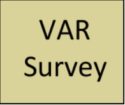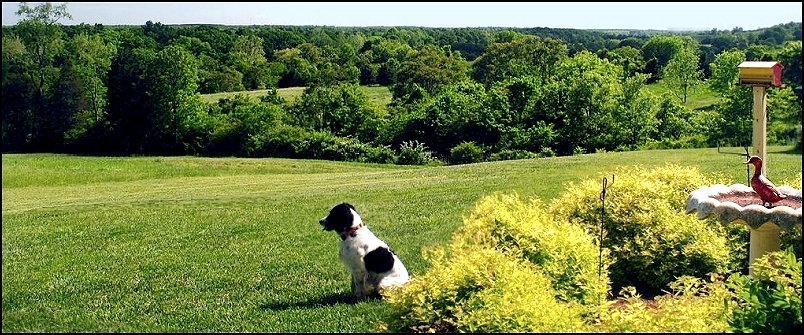
Our Virginia Association of Realtors has recently published the results of a survey conducted among their Realtor members. Below are the shared nuances of the Spring 2021 real estate market in Virginia.
Making An Offer
• Nearly every REALTOR® responding to this survey said that buyers are making offers over list price or including an escalation clause in their offer. Nearly 90% said offers over list price were “very common” and another 8.5% said they were “somewhat common.”
• Buyers in this market are facing stiff competition, and almost all are offering some type of concession in an attempt to make a successful offer.
• About 87% of Virginia REALTORS® said it was “very common” or “somewhat common” for buyers to waive the home inspection. Some REALTORS® commented that buyers were having an inspection done for information purposes only, but not making the offer contingent on the home inspection results.
• Nearly 70% of Virginia REALTORS® said that waiving appraisals has become “very common” or “somewhat common.” Many REALTORS® note that buyers are including a provision that they will pay a certain amount over any appraised value. Other REALTORS® have pointed out that this trend in waiving appraisals has put VA buyers at a disadvantage because they cannot opt out of an appraisal.
• The following tradeoffs are also “very common” or “somewhat common” in today’s market: increasing the earnest money deposit (79.2%), waiving the home sale contingency (66.2%), and offering a shorter loan contingency timeline (68.6%).
Buying A Home
• The fast-paced market and historically low inventory has forced buyers to re-evaluate their housing and neighborhood preferences, widen their search, and make tradeoffs on amenities. Nearly nine out of 10 Virginia REALTORS® members (87.7%) said that it is “very common” or “somewhat common” for home buyers to look outside of their preferred neighborhoods as they realize how few homes are available.
• Buyers in this market seem less likely to make tradeoffs on the size or style of the home they are looking for, but they are willing to consider homes that need major upgrades or updating.
• Only 34.2% of Virginia REALTORS® said that it was “very common” or “somewhat common” for buyers to settle for a townhome or condo instead of a single-family home.
• A little more than half (51.0%) said that it was “very common” or “somewhat common” for buyers to compromise on space or number of bedrooms.
• More than three quarters of Virginia REALTORS® (75.2%) said that buyers were willing to consider homes that need major upgrades or updating.
• As the inventory of existing homes shrinks, some buyers have turned their sights to new construction. About 56% of Virginia REALTORS® said that building a new home, rather than purchasing an existing home, had become “very common” or “somewhat common” among buyers.
• Finally, the tight market has discouraged many buyers. In fact, more than 70% of Virginia REALTORS® said that it is “very common” or “somewhat common” for buyers to decide to put off buying a home altogether in this market.
Contact your realtor to learn how these findings apply in your particular area and price range.
 There are many types of home and property inspections so we’ll deal with two of the main ones in our Charlottesville VA area which are (1) Residential Home/property Inspections and (2) Study Period Inspections (typically for large acreage farm or estate properties). If the buyer is purchasing a large estate or a farm with acreage, that’s when we recommend a Study Period for their inspections, and we’ll talk about that after we finish the standard Home Inspection section of this page.
There are many types of home and property inspections so we’ll deal with two of the main ones in our Charlottesville VA area which are (1) Residential Home/property Inspections and (2) Study Period Inspections (typically for large acreage farm or estate properties). If the buyer is purchasing a large estate or a farm with acreage, that’s when we recommend a Study Period for their inspections, and we’ll talk about that after we finish the standard Home Inspection section of this page. And then there’s the basement or crawl space. If the home has any space underground, the inspector will pay close attention to the basement or crawl space…. even if the basement is finished and furnished. Any sign of dampness or mold is a cause for notation. The possible points for drainage problems are also checked around the exterior of the home (even if there is no sign of dampness inside)…. and details such as the slope of adjacent ground or rainwater drainage will be noted. Drippy exterior faucets are inspected. If any water damage has affected the structural integrity of the exterior steps into the home, they may be suggested for repair. Even sidewalk cracks or irregularities can be noted.
And then there’s the basement or crawl space. If the home has any space underground, the inspector will pay close attention to the basement or crawl space…. even if the basement is finished and furnished. Any sign of dampness or mold is a cause for notation. The possible points for drainage problems are also checked around the exterior of the home (even if there is no sign of dampness inside)…. and details such as the slope of adjacent ground or rainwater drainage will be noted. Drippy exterior faucets are inspected. If any water damage has affected the structural integrity of the exterior steps into the home, they may be suggested for repair. Even sidewalk cracks or irregularities can be noted.
 Both the residential Home Inspection and the Study Period are part of the buying process that we refer to as “due diligence”. Again, it’s important to remember that it’s up to the buyer of real estate in Virginia to verify any claims or statements made by the seller. Buyer beware. This is important. Not all states operate with this legal premise, and often our most experienced real estate purchasers are the ones who’re least able to wrap their minds around this part of our laws. In other states, a seller may not be able to even put his property on the market without providing a guaranteed clear title, but in Virginia a buyer needs to examine and verify all details of the property without relying on information provided by a seller. This period of inspection and verification is what we call “due diligence”. The buyer must perform (often, invest) in research to make sure that the property is able to be sold as it’s claimed, and this may benefit not only the purchaser’s current transaction but also his ability to market this property in the future after his purchase is complete.
Both the residential Home Inspection and the Study Period are part of the buying process that we refer to as “due diligence”. Again, it’s important to remember that it’s up to the buyer of real estate in Virginia to verify any claims or statements made by the seller. Buyer beware. This is important. Not all states operate with this legal premise, and often our most experienced real estate purchasers are the ones who’re least able to wrap their minds around this part of our laws. In other states, a seller may not be able to even put his property on the market without providing a guaranteed clear title, but in Virginia a buyer needs to examine and verify all details of the property without relying on information provided by a seller. This period of inspection and verification is what we call “due diligence”. The buyer must perform (often, invest) in research to make sure that the property is able to be sold as it’s claimed, and this may benefit not only the purchaser’s current transaction but also his ability to market this property in the future after his purchase is complete.

 Pam Dent
Pam Dent